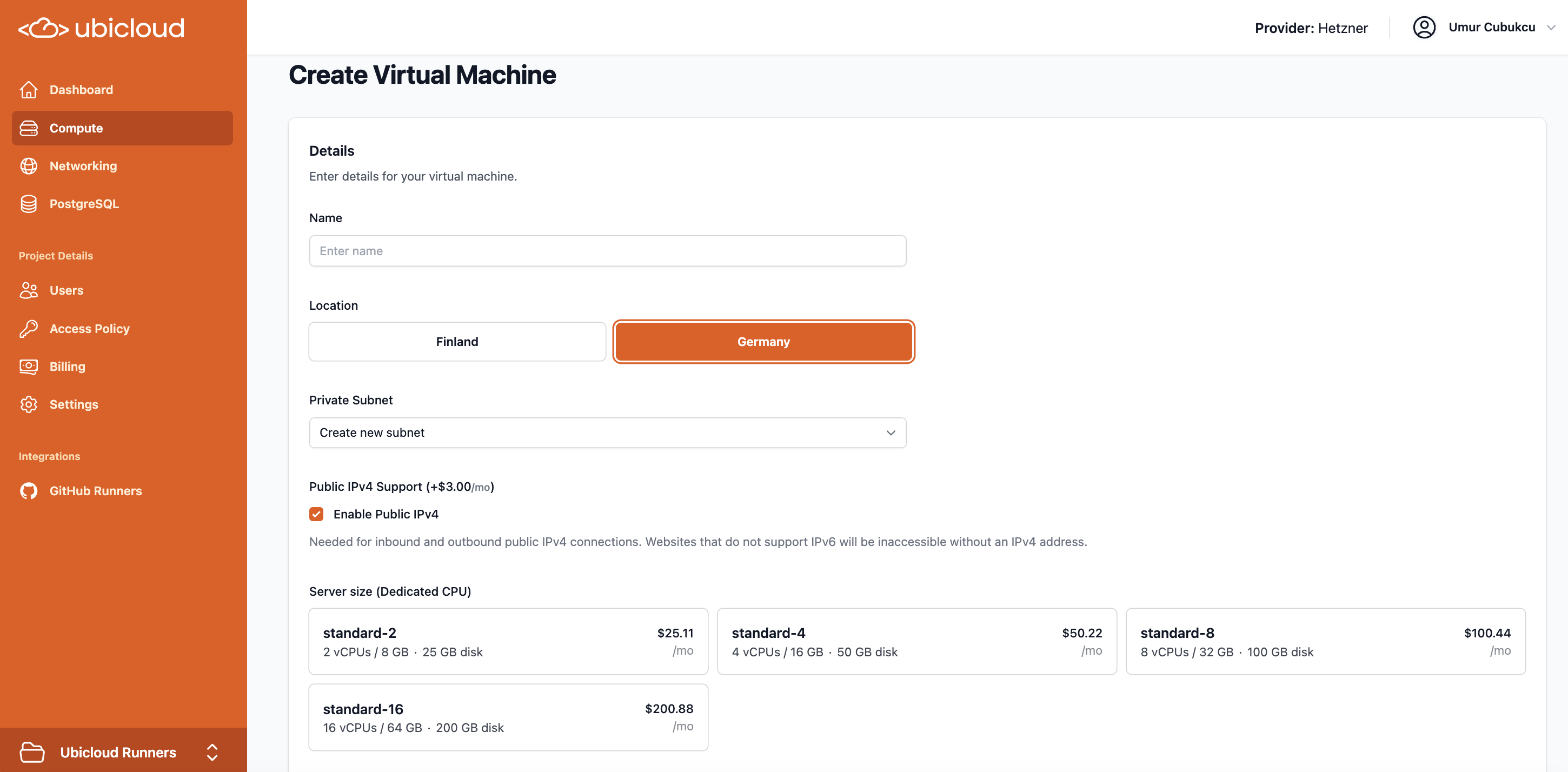Using the large cloud computing providers is convenient, but not exactly cheap. Ubicloud, a new startup founded by the team behind Citus Data, which Microsoft acquired in 2019, wants to change the dynamics by offering a layer of core cloud computing services on top of affordable bare-metal servers from providers like Hetzner, OVH Cloud, Leaseweb and AWS. This includes a managed service and an open source version that allows developers to build their own cloud on bare-metal providers.
Currently, Ubicloud’s focus is on a small set of core components: compute and a PostgreSQL database service (Citus Data also bet heavily on PostgreSQL), in addition to the prerequisite networking capabilities to create public and private virtual networks. Attribute-based access controls are also built-in by default. Over time, the team plans to add a block storage feature and a Kubernetes-based container service as well.

Co-founders Ozgun Erdogan and Umur Cubukcu previously built Citus Data, where they also met Daniel Farina, who previously was instrumental in building Heroku PostgreSQL. During his time at Microsoft, he also worked on several core Azure services. Citus Data was part of the Y Combinator summer 2011 cohort and after his time at Microsoft, Cubukcu went back to the accelerator as a visiting partner in 2023.
“We obviously built our careers and what we have on the cloud itself, right? Citus Data wouldn’t have been possible without it,” Cubukcu said. “We are absolutely big fans of the cloud. At the same time […], we’ve been in it for such a long time and we see where there’s actually ways to do it better, or do it simpler.”
He acknowledges that Ubicloud won’t replace the full breadth of AWS offerings. But he argues that the majority of the value is in maybe 10% of those offerings and he believes that the Ubicloud managed service can offer that to developers at a lower price and with a simpler developer experience. “The delta between the hardware costs and what the hyperscalers are charging has gotten progressively larger. It used to be that you’d see lots of price drops, but that’s not quite happening anymore,” he said. Later, he also noted that one area where there has been progress is egress fees, which helps a service like Ubicloud.
Developers on Ubicloud will be able to choose where they want to host their services. Right now, the team told me, one of the sweet spots for Ubicloud is running GitHub Action runners. The company is also seeing a number of users who spin up machines for long-running workloads on the platform, as well as solid demand for its PostgreSQL database service.
Erdogan stressed that a Kubernetes platform is also on the way, which in turn will allow the team to offer more features on top of its infrastructure-as-a-service layer.
If you’ve been around the cloud for long enough, then an open source competitor to AWS may sound a bit familiar. Ever since the dawn of hyberscale clouds, we’ve seen projects that aimed to provide the core AWS services, mostly for on-premises use cases. The poster child here is OpenStack, which went through its own boom and bust cycle, but has found stable ground in recent years.
The Ubicloud team, however, argues that its approach is quite different. “OpenStack is from a different era,” Cubukcu said. “It reminds me […] a bit of Hadoop, where there is a consortium where a lot of different companies are coming together. It is open, yes, but then it supports 10 different flavors of operating systems and hypervisors — and in order to make it work, you really need an army of people. It is a solution, but you don’t have, for example, a managed OpenStack-as-a-service, right? It’s too complicated for that, whereas with Ubicloud, our managed service is available from day one. You sign up, you can start using it in two minutes.”
Similarly, Erdogan noted that today’s open source landscape is quite different. That allows Ubicloud to use existing open source projects for its virtual networking and storage services, for example. “Fifteen years ago, all those service [that are on the Ubicloud roadmap] did not have open source data plane components. These days, for the core services, all of those now have good open source alternatives, barring maybe one or two,” he said.
Ubicloud also today announced that it has raised a $16 million seed round, which closed in early January. Among the investors are Y Combinator and 500 Emerging Europe, as well as a number of angel investors.
The company currently has 10 employees, split between San Francisco, Amsterdam (where the Citus Data team built a small engineering team during the team’s Microsoft days) and Istanbul.































Comment